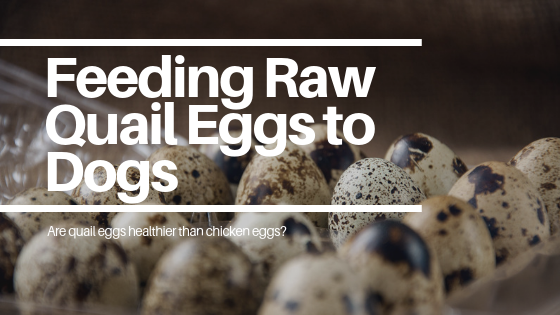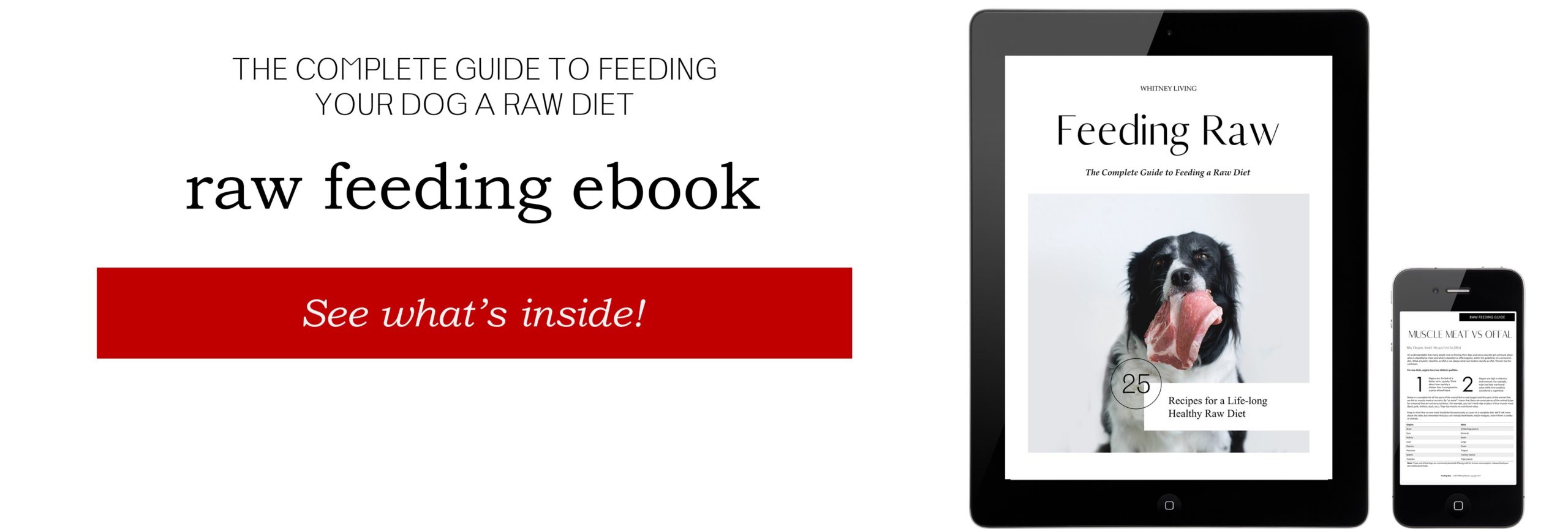Quail eggs are both an inexpensive source of nutrients to your dog’s diet as well as a complete source of nutrition. When fed raw, quail eggs for dogs are one of the most complete sources of amino acids and are also good sources of vitamin A, riboflavin, folate, vitamin B12, fatty acids, and selenium.
Dogs are opportunistic eaters. In other words, in the wild, they’ll eat what they can get their paws on including eggs straight from the nest. But as house pets, they don’t have free access to this natural nutritional boost.
Eggs are considered one of nature’s perfect foods yet only in their raw whole state can eggs provide your dog with their healthful benefits. Though it may be tempting to boil eggs or scramble them before feeding to your pet, this defeats the purpose of feeding eggs and your pet will reap far fewer benefits from eating them cooked.
Buying Quail Eggs
Quality is important when it comes to buying quail eggs for dogs. Because they are such an inexpensive source of nutrition it’s important to buy the most healthful quail eggs you can get your hands on. Quail eggs are not as readily available in stores as chicken eggs, but they can be found at local farmer’s markets and can also be sourced directly from local farmers who raise quail. You may even be able to get a discount for buying in bulk if they know you’re buying their quail eggs for dogs.
By buying locally you’re also able to see firsthand where your dog’s quail eggs come from. You want to make sure that the birds are healthy, that they have a clean place to live and that they are treated with care. All the better if they’re fed an organic diet and live in pens where they can run and play in a natural environment. This will help ensure that the eggs don’t carry an overabundance of bad bacteria due to sick birds or a dirty environment.
Quail Eggs and Salmonella
The number one fear people have about feeding raw eggs to their dogs is the risk of salmonella. What’s unique about quail is that their body temperature is higher than chickens so they don’t carry salmonella or pass it on to their eggs. However, salmonella can still be in their environment if it is dirty/contaminated.
While your raw fed dog is capable of ingesting and safely passing higher levels of bad bacteria, help ensure your dog’s health by buying clean quail eggs from healthy birds.
What are Quail Eggs?
Quail eggs are small speckled eggs produced mainly by Coturnix quail – also known as European quail or Pharaoh quail.
The reason you would end up buying Coturnix quail eggs for dogs or for your own consumption is because Coturnix quail lay more eggs than any other breed of quail. That’s what they’ve been bred for, for many, many years.
The Nutritional Qualities of Quail Eggs for Dogs
In many parts of the world, quail eggs are considered a delicacy.
Quail eggs are packed with nutrients as are eggs in general, but quail eggs are higher in some nutrients than chicken eggs whether you’re comparing quail and chicken eggs that were commercially raised or eggs pasture-raised hens.
Each quail egg typically weighs 9 grams, though they can easily vary from 7-11 grams. For context, a large chicken egg is about 50 grams. So, it takes about 5 quail eggs to equal one chicken egg.
The nutritional values found in 1 raw quail egg:
Protein: 1.17 g (one chicken egg has 6.28 g)
Fat: 1 g (one chicken egg has 4.75 g)
Vitamin A: 48.9 IU (a chicken egg contains 244 IU)
Vitamin E: 0.1 mg (a chicken egg contains 0.5 mg)
Riboflavin: 0.1 mg (a chicken egg contains 0.2 mg)
Vitamin B6: 0.0 mg (a chicken egg contains 0.1 mg)
Folate: 5.9 mcg (a chicken egg contains 23.5 mcg)
Vitamin B12: 0.1 mcg (a chicken egg contains 0.6 mcg)
Iron: 0.3 mg (a chicken egg contains 0.9 mg)
Phosphorous: 20.3 mg (a chicken egg contains 95.5 mg)
Potassium: 11.9 mg (one chicken egg contains 67 mg)
Zinc: 0.1 mg (a chicken egg contains 0.6 mg)
Selenium: 2.9 mcg (a chicken egg contains 15.8 mcg)
Note: These values are for quail and chicken eggs that are commercially raised. The values are higher in eggs from pasture-raised hens. Values above are from the USDA National Nutrient Database.
Also, while the percentages may seem small, keep in mind that about 5 quail eggs equal the size of 1 chicken egg.
Amazing Health Benefits of Quail Eggs for Dogs
Now that you know the nutritional make-up of quail eggs, let’s talk about how these nutrients play a role in your dog’s health.
Quail Eggs Boost Energy
Quail eggs for dogs are a great source of fat: your dog’s most important source of energy. They’re also rich in iron which is important for your dog’s energy levels.
Quail Eggs Help Maintain Skin, Hair and Eye Health
Quail eggs are very high in Riboflavin (vitamin B2). B vitamins help keep your dog’s skin, hair, and eyes healthy. Riboflavin also plays a role in the production of red blood cells.
Feeding Quail Eggs to Dogs
It’s important to remember to feed eggs in moderation. Although quail eggs for dogs can be a part of a healthy diet, balance is still a must.
Feed eggs to tolerance, as a nutritional bonus. If your pet shows any signs of digestive upset then you’re either feeding too many or adding them to the diet too quickly, so simply back off of the amount and/or reintroduce the quail eggs slower.


Quail can not get salmonella, a quails body temperature is elevated more then a chicken making salmonella not possible.
do u sell life quail
I don’t but I highly recommend AJ Farms. https://ajfarmsllc.com/